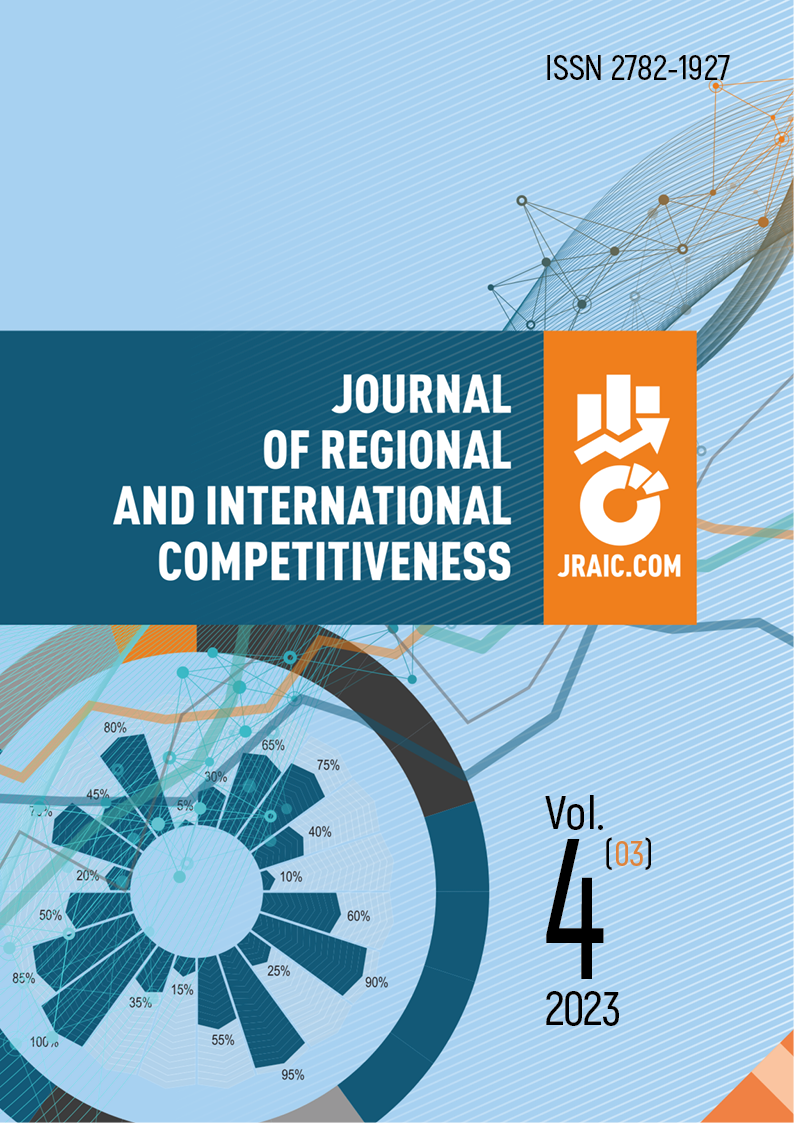Moscow, Moscow, Russian Federation
Novosibirsk, Novosibirsk, Russian Federation
The 2020s is a new stage of global digitalization, a period of a new digital «unreal» reality, and the formation of a biodigital economy, which promoted the further development of tech entrepreneurship and a new image of a businessperson - a tech mogul influenced by new information, communication, and/or digital technology, as well as new humanitarian concepts, such as transhumanism. For Russia, 2022 has become the year of the sanctions war between the West and Russia, which launched a military operation in Ukraine and the domestic policy of import substitution, which introduces its own changes to the model of a Russian tech entrepreneur. The paper demonstrates two ways of scientific and technological progress or innovation development, tech entrepreneurship and businessperson, their opposition. Thus, the digital economy contributes to consumerism and creates new leisure industry such as gaming, leading to a new inherently addictive dependence of man on computer games, rather than the quality harmonic development of man according to Florensky. To be human-centered, new technology must facilitate human interaction, transforming the individual into a more harmonious and meaningful being. The results of studying the tech entrepreneurship, confirm the authors’ hypothesis of an ambiguous contradictory impact of the digital economy on the tech entrepreneur, who is forced to quickly readjust, create new business models, explore new global markets, and switch to a new format of business and simultaneously be a consumer, for example, of video games that often deform human consciousness. Not every company or businessman is able to cope with such a task, which leads to their bankruptcy.
GLOBAL DIGITALIZATION, TECHNOLOGY ENTREPRENEURSHIP, PLATFORM ECONOMY AND TRANSNATIONAL IT CORPORATIONS, NEW MODEL OF BUSINESSPERSON - TECH ENTREPRENEUR, DIGITAL TECHNOLOGY OF THE INDUSTRY 4.0 (HIGH-TECH), HIGH HUMANITARIAN TECHNOLOGY (HIGH-HUME), MAN-INTERNET, MAN-GAMER, "HACKED MAN"
1. Ansong, E., & Boateng, R. (2019). Surviving in the digital era – Business models of digital enterprises in a developing economy. Digital Policy, Regulation and Governance, 21(2), 164–178. Retrieved from https://doi.org/10.1108/DPRG-08-2018-0046 (accessed 25.11.2020).
2. Bernays, E. (1947). The Engineering of Consent. Annals of the American Academy of Political and Social Science, 250(1), 113-120.
3. Bykova, N. (2021). How the work will change. Expert, (29), 44-49 (in Russian).
4. Eggers, F. (2020). Masters of disasters? Challenges and opportunities for SMEs in times of crisis. Journal of Business Research, 116, 199–208. Retrieved from https://doi.org/10.1016/j.jbusres.2020.05.025 (accessed 25.12.2020).
5. Erickson, T., & McDonald, D. W. (2008). HCI Remixed. Reflections on Works That Have Influenced the HCI Community. Boston: MIT Press.
6. Florensky, P. A. (1999). Organ projection. Macrocosm and microcosm. In Works (Vols 4. Vol. 3 (1)). Moscow (in Russian).
7. Geliskhanov, I. Z., & Yudina, T. N. (2018). Digital platform: A new economic institution. Quality - Access to Success, 19(2), 20-26.
8. Grinin, L., & Korotayev, A. (2015). Great Divergence and Great Convergence. A Global Perspective. Heidelberg, New York, Dordrecht, London: Springer.
9. Harari, Y. N. (2020). Homo Deus. A Brief History of the Future. Moscow: Sindbad Publishers (in Russian).
10. Harrison, S., Tatar, D., & Sengers, P. (2007). The Three Paradigms of HCI. Proceedings of the 7th ACM Conference on Designing Interactive Systems. (pp. 1–18). New York: ACM Press. Retrieved from http://people.cs.vt.edu/~srh/Downloads/TheThreeParadigmsofHCI.pdf (accessed 25.11.2021).
11. Hernandez, K., Faith, B., Prieto Martín, P., & Ramalingam, B. (2016). The impact of digital technology on economic growth and productivity, and its implications for employment and equality: An evidence review. IDS Evidence Report. Brighton: Institute of Development Studies. Retrieved from https://opendocs.ids.ac.uk/ opendocs/handle/20.500.12413/12659
12. Isenberg, D. (2010). How to start an entrepreneurial revolution. Harvard Business Review. Retrieved from https://hbr.org/2010/06/the-big-idea-how-to-start-an-entrepreneurial-revolution
13. Katasonov, V. Yu. (2015). Capitalism and the ideology of “monetary civilization”. Moscow: Institut rossijskoj civilizacii (in Russian).
14. Leybin, V. (2021). Artificial intelligence: what it can and cannot do. Expert, (49), 42-45 (in Russian).
15. Mechanic, A. (2021). «Rosnano»: in search of a breakthrough that never happened. Expert, (49), 19-21 (in Russian).
16. Negrea, A., Ciobanu, G., Dobrea, C., & Burcea, S. (2019). Priority aspects in the evolution of the digital economy for building new development policies. Calitatea, 20(S2), 416–421.
17. Nepelski, D. (2019). How to facilitate digital innovation in Europe. Intereconomics, 54(1), 47–52. Retrieved from https://doi.org/10.1007/s10272-019-0791-6 (accessed 20.11.2021).
18. Novikova, E. (2021). Purring robot waiters. Expert, (50), 30-31 (in Russian).
19. Rifkin, J. (2000). The Age of Access: The New Culture of Hypercapitalism, Where all of Life is a PaidFor Experience. N.Y.: J.P. Tarcher/Putnam.
20. Rogers, Y., Sharp, H., & Preece, J. (2007). Interaction Design: Beyond Human Computer Interaction. Hoboken, New Jersey: Wiley.
21. Schwab, K. (2016). The fourth industrial revolution. Moscow: Eksmo (in Russian).
22. Stam, E. (2015). Entrepreneurial Ecosystems and Regional Policy: A Sympathetic Critique. European Planning Studies, 23(9), 1759–1769.
23. Yudina, T. N. (2021). Digital delusion: high-tech together with high-hume and man. In Yu. M. Osipova, M. I. Lugacheva, T. S. Sukhina, T. N. Yudina (Eds.), Digitalization and being. Moscow: Ehkonomicheskij fakultet MGU imeni M.V. Lomonosova, 140-148 (in Russian).




















